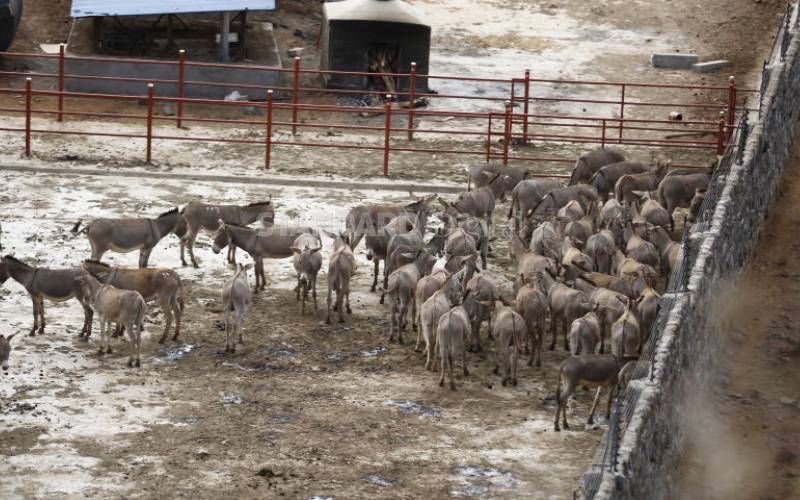×
The Standard e-Paper
Kenya’s Boldest Voice

Goldox export slaughterhouse in Mogotio, Baringo county. [Kipsang Joseph/Standard]
Owners of donkey slaughterhouses have vowed to move to court to challenge a directive banning donkey meat trade.